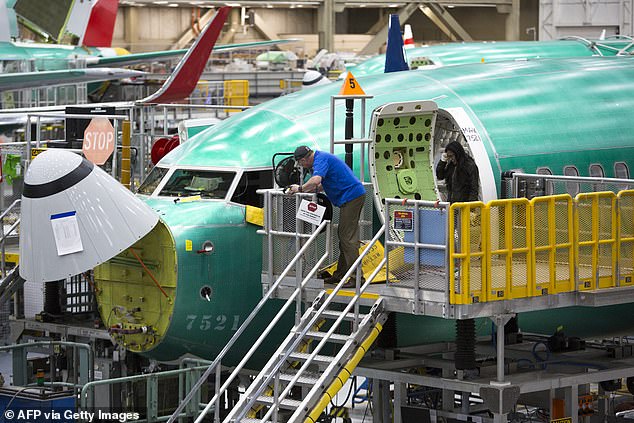Boeing plans to lay off about 10% of its workers in the coming months, about 17,000 people, as it continues to lose money and tries to cope with a strike that is paralyzing production of the company’s best-selling planes.
New CEO Kelly Ortberg told staff in a memo Friday that the job cuts will include executives, managers and employees.
The company has about 170,000 employees worldwide, many of them working in manufacturing facilities in the states of Washington and South Carolina.
The nearly month-long strike by 33,000 workers has only added to the company’s litany of problems, meaning it will now have to undergo another round of adjustments.
Boeing announced it plans to cut 10 percent of its workforce as it projected a large third-quarter loss in the wake of a machinist strike in the Seattle region.
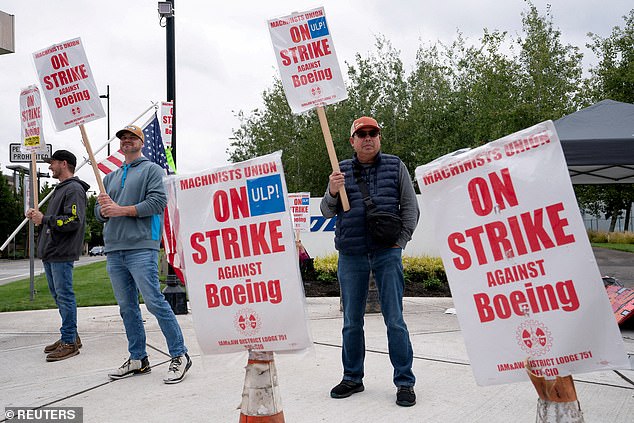
Boeing factory workers and their supporters gather on a picket line during the strike near the entrance to a Boeing production facility in Renton, Washington.
Among recent issues facing the company, the Federal Aviation Administration increased scrutiny of the company after a panel exploded on a Max during an Alaska Airlines flight in January.
Boeing agreed to plead guilty and pay a $243.6 million fine to avoid a criminal trial for conspiracy to commit fraud related to the Max, but relatives of the 346 people who died in two Max crashes want harsher punishments.
And Boeing drew attention for all the wrong reasons when NASA decided that a Boeing spacecraft was not safe enough to transport two astronauts home from the International Space Station.
Boeing staff from the International Association of Machinists and Aerospace Workers walked off the job on September 13 after overwhelmingly rejecting a contract offer.
Boeing had already imposed temporary furloughs, but Ortberg said they will be suspended because of the impending layoffs.
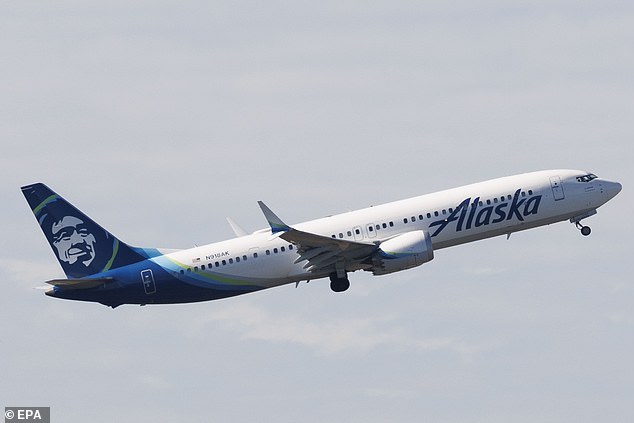
The Federal Aviation Administration increased scrutiny of the company after a panel exploded on a Max during an Alaska Airlines flight in January.
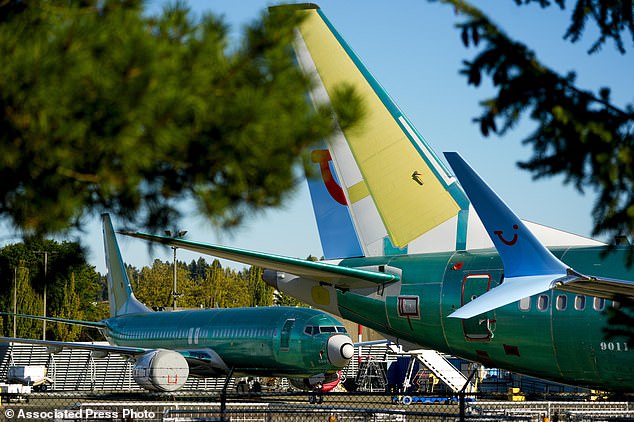
Unpainted Boeing 737 Max aircraft at the company’s facility in Washington state
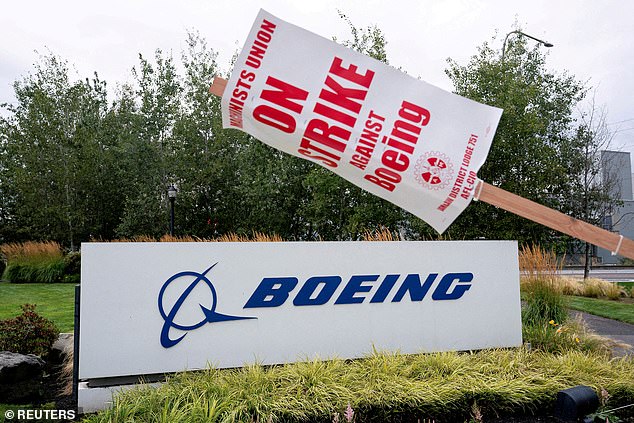
A strike sign hangs from a pole near a Boeing sign as Boeing factory workers and supporters gather on a picket line near the Renton, Washington factory.
The company will further delay the launch of a new aircraft, the 777X, to 2026 instead of 2025.
It will also stop building the freighter version of its 767 aircraft in 2027 after finishing current orders.
Boeing has lost more than $25 billion since the beginning of 2019.
Some 33,000 union drivers have been on strike since September 14.
Two days of talks this week failed to reach an agreement, and Boeing filed an unfair labor practices complaint against the International Association of Machinists and Aerospace Workers.
In addition to announcing the layoffs, Boeing also released a preliminary report on its third quarter financial results, and the news is not good for the company.
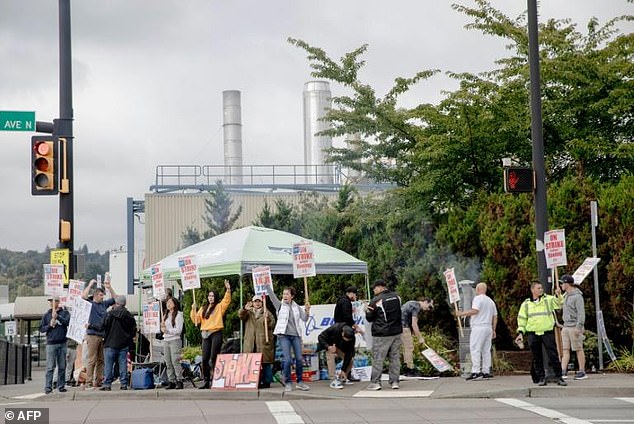
Boeing had hoped to avoid a strike after reaching a preliminary agreement that included a 25 percent across-the-board wage increase over four years.
Boeing said it burned through $1.3 billion in cash during the quarter and lost $9.97 per share.
Industry analysts expected the company to lose $1.61 per share in the quarter, according to a FactSet survey.
Boeing announced some major writedowns on Friday: a $2.6 billion charge related to 777X delays, $400 million for the 767 and $2 billion for space and defense programs, including new Air Force One planes, a capsule space for NASA and a military program. refueling tanker truck.
The Arlington, Virginia-based company said it had $10.5 billion in cash and marketable securities as of Sept. 30. Boeing is scheduled to release full third-quarter numbers on October 23.
The strike has a direct bearing on the cash burn because Boeing gets half or more of the price of the planes when it delivers them to airline customers.
The strike has paralyzed production of the 737 Max, Boeing’s best-selling plane, and the 777 and 767.
The company still makes 787s at a non-union plant in South Carolina.
The new CEO faces many challenges to turn the company around.
“Our company is in a difficult situation and it is difficult to overstate the challenges we face together,” Ortberg told staff.
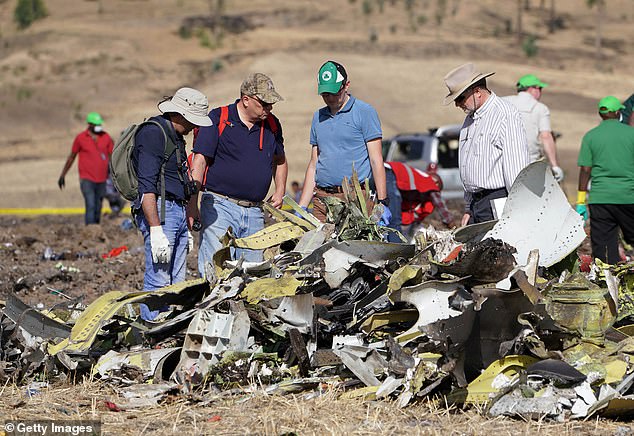
Ethiopian Airlines chief pilot asked Boeing for emergency procedures for the 737 MAX just months before the deadly 2019 crash (pictured)

The families have long pushed for a criminal trial, arguing it could prove that Boeing executives knew they were misleading the FAA about its faulty flight control system.
He said the situation “requires difficult decisions and we will need to make structural changes to ensure we can remain competitive and deliver for our customers over the long term.”
“While our business faces short-term challenges, we are making important strategic decisions for our future and have a clear vision of the work we must do to restore our business,” Ortberg said.
Ortberg also promised to take on “additional oversight” of Boeing’s troubled space and defense businesses, which will experience “substantial new losses” in the third quarter, he said in the message to employees.
Ortberg took over at Boeing in August, becoming the troubled company’s third CEO in less than five years. He’s a longtime aerospace industry executive, but he’s an outsider to Boeing.

